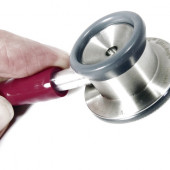Our website uses cookies so we can analyse our site usage and give you the best experience. Click "Accept" if you’re happy with this, or click "More" for information about cookies on our site, how to opt out, and how to disable cookies altogether.
We respect your Do Not Track preference.

We are often asked if an employer can record the phone conversations in their workplace. A recent case before the Human Rights Review Tribunal put this question in sharp relief recently and serves as a good guide for employers. The answer is yes, but as you’ll see, conditions do apply.
Dr A was employed as a locum at two GP surgeries owned and run by a husband and wife team, Dr B and Dr C. Dr A claimed her two employers recorded her phone conversations without telling her, and used the information as evidence for an appeal to the District Court in their employment dispute with her.
Mystery files
The dispute began when Dr B ended Dr A’s employment after he discovered the computer system at one of the surgeries contained a folder of 600 pages of patient information. The files had been downloaded into the system and related to patients who were not clients of the couple's surgeries. Rather it was information about clients of a company which helps give patients access to medical specialists who then provide a second opinion and medical advice.
Dr B concluded that Dr A had been carrying out work for another employer while she was working for the couple at their two surgeries. He terminated her employment by sending an email asking that she immediately stop working for him and his wife. Dr A emailed back asking for four weeks pay.
Dr B believed he was entitled to sack Dr A without notice and pay because he felt patient care had been compromised in terms of extra waiting time, inattentiveness to patient problems and a failure to attend to paperwork such as lab results and ACC queries.
Dr A took her case to the Disputes Tribunal which ordered Dr B to pay her $7,000. Dr B appealed the Disputes Tribunal decision to the District Court and prepared a detailed defence which included 22 transcripts of 27 phone calls made by Dr A while she was working for the couple.
Unfortunately for Dr B, the appeal was dismissed because there were limited permitted grounds for appeal to the District Court from the Disputes Tribunal.
Call recordings
At this point, the privacy question comes into the dispute. Dr A took a privacy complaint to the Human Rights Review Tribunal. She said she had been shocked to discover that her private phone calls at both the surgeries had been recorded and that transcripts of those private conversations existed.
What followed were two strikingly different accounts of whether or not Dr A had been told that calls were recorded. Dr A said she had not been told and provided two witnesses to give evidence. Dr B and his wife Dr C said Dr A had been told and provided two witnesses to support their accounts.
After hearing all the witnesses, the Tribunal concluded Dr B, his wife and their witnesses were credible and reliable. It did not believe Dr A had not been told incoming and outgoing phone calls from the two surgeries were recorded. While Dr A was a sincere witness, she was mistaken on this point.
In its assessment, the Tribunal examined each of the relevant Privacy Act principles which Dr A said had been breached.
Privacy principles
Principle 1 says information must be collected for a lawful purpose connected to the function or activity of the agency and the collection must be necessary for that purpose. The Tribunal said recording phone calls was necessary to ensure a clinic was complying with regulatory procedures, to provide evidence for any regulatory investigation, to investigate complaints, to check what a patient or caller might have said or been told by a doctor, nurse or receptionist, and whether test results were accurately given over the phone. It decided principle 1 was not breached.
Principle 2 says that where an agency collects personal information, the information must be collected directly from the individual concerned. The evidence established the information collected came directly from Dr A.
Principle 3 says that where an agency collects personal information from an individual, the person must be made aware their information was being collected. The Tribunal said it accepted Dr A had been told the calls were recorded. In addition, the surgeries’ policies and procedures, which mention phone recording, were available in an electronic form on the computer system and in hard copy at both reception areas. It decided the steps taken by Dr B and Dr C met the requirements of principle 3.
Principle 4 says personal information cannot be collected by unlawful or unfair means which intrude to an unreasonable extent on a person’s privacy. The Tribunal said Dr A had not established anything unlawful, unfair or unreasonable had happened.
Finally, principle 11 says personal information should not be disclosed unless one of the exceptions in the Privacy Act applied. In this case, the disclosure was for the purpose of an appeal to the District Court which is allowed for in the Act.
The Tribunal concluded no breach of principles 1 to 4 and 11 had been established and dismissed the case.
Image credit: Stethoscope in use (via Wikipedia Commons)
Back